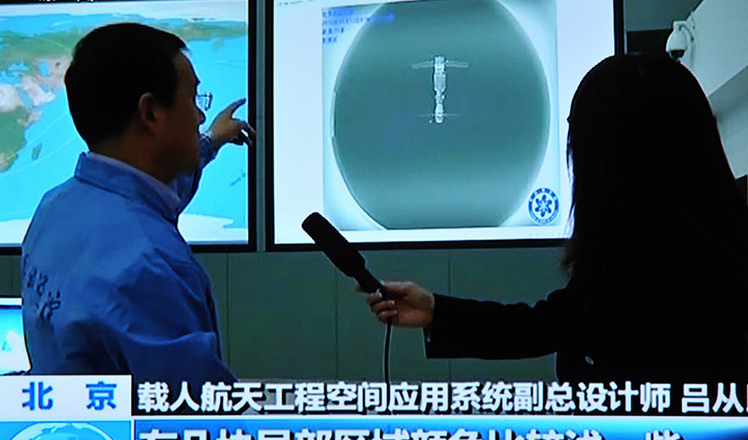Weakening of US alliance system natural tendency
Updated: 2016-10-26 07:45
By Wang Hui(China Daily)
|
||||||||
As long as Manila continues to seek peaceful solutions to its territorial disputes with China in the South China Sea, the prospects for bilateral cooperation are promising, as Beijing and Manila have pledged to deepen their reciprocal cooperation in various fields as the ice between them begun to thaw.
The thawing of China-Philippine ties not only helps restore healthy relations between the two neighbors but also contributes to building peace and stability in the South China Sea, in which the US too has claimed a stake.
However, the US should not lament the possible loss of a devoted ally as its military alliance system no longer conforms to the trend of our times. Forged after the World War II and prevailing through the Cold War era, the US global military alliances bear such features as inequality and exclusiveness, and are now outdated.
In recent years, NATO, the biggest military ally of the US, has disagreed with the US over global and regional security issues. The US military alliance with Saudi Arabia and Turkey is obviously in trouble now. Skepticism and criticism over the military alliances within and outside the US allies also grow day by day.
Under such a backdrop, the sentiments expressed by Duterte bring to the fore such skepticism and could prompt other US allies to rethink their dependent relations with the US in the light of the changing global political and security conditions.
The US has relied on its global military alliance with more than 30 countries to bolster its global leadership and play the role of a world policeman.when international cooperation under an equal footing is gathering greater consensus in the world arena, the weakening of US alliance system will only prove to be a natural process.
The author is deputy editor-in-chief of China Daily Asia Pacific.
jasmine@chinadailyhk.com
- Manila clarifies Duterte's talk of US 'separation'
- US gets clarification on Duterte's 'separation' comment
- Duterte says he will not 'impose' on China
- Duterte's visit presents overdue opportunity for China-Philippines rapprochement
- Duterte: China deserves respect it now enjoys
- Duterte to scrap future war games with US
- Duterte treads the right track
- World's first multiple-span cable-stayed bridge to open in Hunan
- Accompanying satellite sends back images of Tiangong II, Shenzhou XI
- China prefab house explosion kills 14, wounds 147
- 88 years old becomes oldest undergraduate in China
- Long March a 'stately monument': Xi
- Ten photos from around China: Oct 14-20
- Lavrov, Kerry discuss Syrian situation
- Turkish troops kill 17 IS militants since Mosul operation: FM
- 59 killed in attack on police academy in Pakistan
- Syrian forces capture new area in Aleppo
- Fate of child migrants uncertain before France demolishes Jungle camp
- Former Japan SDF official believed to have blown himself up, injures 3

 Top 5 property destinations for Chinese investors
Top 5 property destinations for Chinese investors
 Accompanying satellite sends back images of Tiangong II, Shenzhou XI
Accompanying satellite sends back images of Tiangong II, Shenzhou XI
 Dare you jump
Dare you jump
 Through the lens: Under the blue sky of Tibet
Through the lens: Under the blue sky of Tibet
 Military blind date attracts hundreds young women
Military blind date attracts hundreds young women
 Britain's Red Arrows arrive at Zhuhai for China air show
Britain's Red Arrows arrive at Zhuhai for China air show
 Villagers build ladder on cliff with 1,500 steel pipes
Villagers build ladder on cliff with 1,500 steel pipes
 Colorful leaves adorn Great Wall in Beijing
Colorful leaves adorn Great Wall in Beijing
Most Viewed
Editor's Picks

|

|

|

|

|

|
Today's Top News
'Zero Hunger Run' held in Rome
Trump outlines anti-terror plan, proposing extreme vetting for immigrants
Phelps puts spotlight on cupping
US launches airstrikes against IS targets in Libya's Sirte
Ministry slams US-Korean THAAD deployment
Two police officers shot at protest in Dallas
Abe's blame game reveals his policies failing to get results
Ending wildlife trafficking must be policy priority in Asia
US Weekly

|

|








